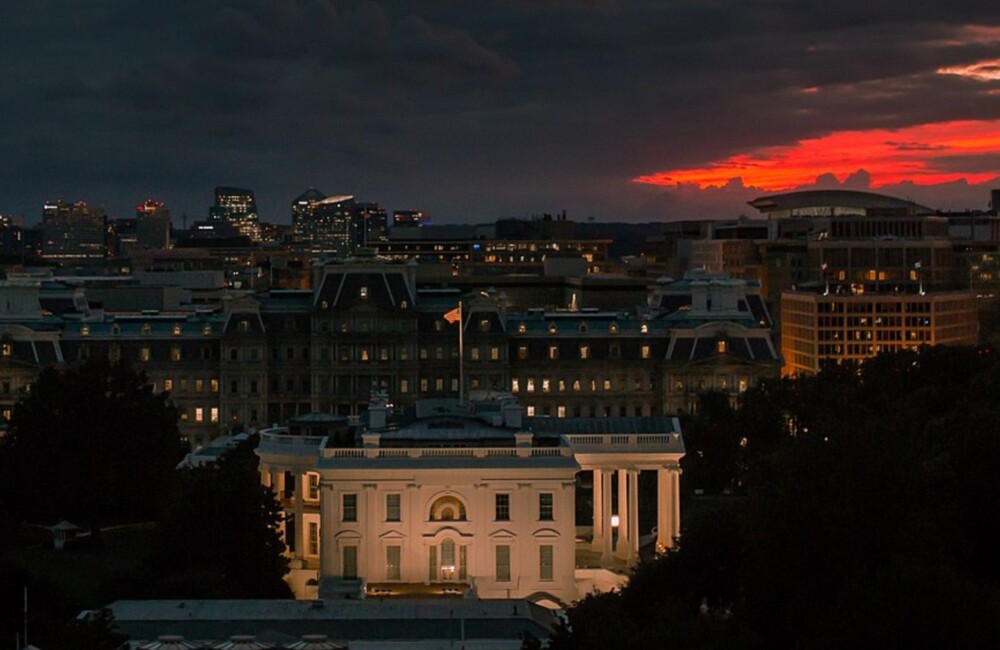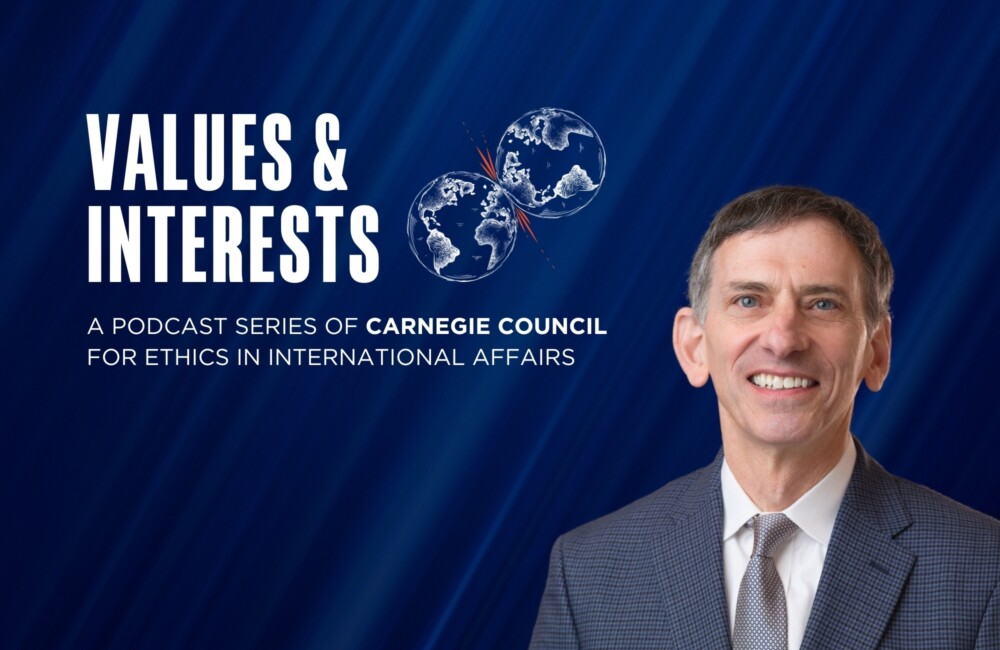
Joel H. Rosenthal is president of Carnegie Council for Ethics in International Affairs. As a nonprofit leader, scholar, and teacher he works to empower ethical action, with a particular focus on U.S. foreign policy, issues of war and peace, human rights, and pluralism. At Carnegie Council, Rosenthal leads a team that identifies critical ethical issues, convenes experts, and produces agenda-setting resources to educate and activate communities globally.
Rosenthal is editor-in-chief of the Ethics & International Affairs journal published by Cambridge University Press. His first book Righteous Realists is an examination of the political realists who shaped post-WWII America in the nuclear age, including Hans Morgenthau, Reinhold Niebuhr, and George Kennan. His current writing and commentary can be found at the President’s Desk.
Rosenthal is the recipient of numerous awards including the Distinguished Scholar Award from the International Studies Association for his lifetime achievement in international studies and an Honorary Degree of Doctor of Social Science from the University of Edinburgh. He received his Ph.D. from Yale University and BA from Harvard University.
Subscribe to the Carnegie Ethics Newsletter for updates and analysis from Joel
Featured Work

FEB 10, 2026 • Article
A Moral Rupture
As moral relativists try to sanitize Trump's transgressive policies, Canada's Prime Minister Carney warns, "We are in the midst of a rupture, not a transition."

DEC 15, 2025 • Video
The Ethics of Decision-Making in National Security
Avril D. Haines, former director of national intelligence, offered insights into the importance of values, how to defend ethical norms, and pathways for next-gen leaders.

NOV 3, 2025 • Report
Nuclear Complacency
Access a new report from Carnegie Council and The Harry Frank Guggenheim Foundation on the growing risk of nuclear complacency.

OCT 16, 2025 • Video
Re-envisioning Humanitarianism for a Changing World
In the Global Ethics Day 2025 keynote event, an expert panel discussed the present and future of humanitarian aid, in this challenging political environment.

SEP 11, 2025 • Video
Post-Liberal American Power
In the first event in our "Values & Interests" series, an expert panel examines the question: Has Trump 2.0 ushered in an era of post-liberal American power?

AUG 28, 2025 • Article
Ethics in a Post-Liberal World
Seven months into Trump's second term, liberal principles hang in the balance. Bringing these norms back to life will require courage and the power of ...

APR 4, 2025 • Video
Unlocking Cooperation: Space Diplomacy
In this event, Northeastern University’s Ethics Institute partnered with Carnegie Council to host a convening on the future of international space governance, security, & sustainability.

FEB 20, 2025 • Podcast
Morality and Power from the Individual to the Institution, with Joel Rosenthal
For the inaugural episode of "Values & Interests" Joel Rosenthal unpacks the complex and challenging relationship between morality and power in our personal lives and geopolitics.

FEB 6, 2025 • Article
A Moment for Moral Resilience—Not Exhaustion
Humanitarianism, international cooperation, and democracy are being challenged and outright rejected. But we need moral resilience to help us navigate this complicated time.

NOV 21, 2024 • Article
A New International Order Is Emerging, We Must Bring Our Principles With Us
On the heels of a new international order, Carnegie Council will continue to champion the vision of peace and cooperation that remains our mission.